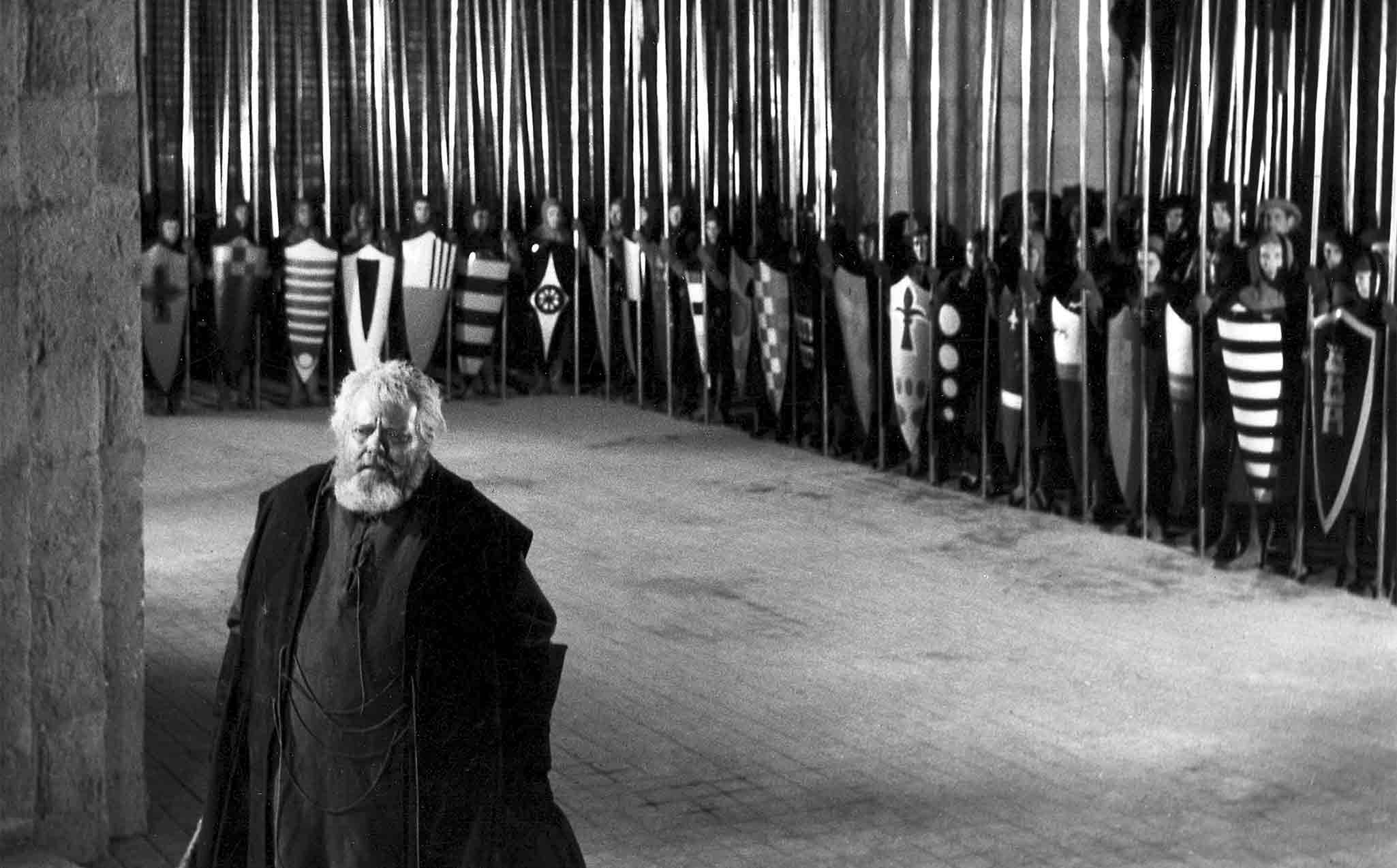Shakespeare on Film Series at Pollock Theater
The Bard Goes Hollywood at UCSB

Cinema’s long and varied relationship with the Bard is the subject of Shakespeare on Film, a unique series presented January 16-February 22 by the Carsey-Wolf Center and screened at UCSB’s state-of-the-art Pollock Theater. Carefully curated and featuring guests from the filmmaking community and academia to discuss each film, the project follows on the heels of the Pollock’s Script to Screen series, and launched last year with Expanded Hitchcock and Trans Media. Last fall, the subject was Hollywood Berlin, and a highlight was an entertaining appearance by the great and defiantly quirky individualist Bavarian director Werner Herzog, after a screening of his classic Nosferatu. In the works in coming quarters: a series on Women and Comedy and Frankenstein on Film.
The current Shakespearean program represents the center’s first venture into a theatrical-literary source, explained the series’ director, film and media professor Patrice Petro. “What we are aiming to do is to provide a unique experience for filmgoers by selecting films that build upon one another,” he said. “This format offers people something they will not get anywhere else, since our format includes in-depth discussions with guests that range from scholars to directors to screenwriters and other participants in the creative process.”
Considering Shakespeare only wrote for the stage, how did the 16th- and 17th-century playwright become a film series topic? “What made [him] an obvious choice for us this winter was the fact that there is an incredibly long history of film adaptions of Shakespeare plays — Shakespeare has received writing credit for nearly 1,300 movies — and we were able to draw on and feature the expertise of UCSB faculty, most notably Shakespeare scholar James Kearney.”
Faced with an embarrassment of riches, Petro said, “We had to make some difficult decisions when curating this series.” The lineup includes classics such as Laurence Olivier’s 1948 Hamlet (Feb. 15), for which Olivier won an Academy Award for Best Actor in a Leading Role, and the series opener, Chimes at Midnight (Jan. 16), Orson Welles’s 1965 Falstaffian Shakespearean mash-up, a sometimes-neglected masterpiece by Welles, who Kearney cites as “one of the most important translators and champions of Shakespeare in American film.” Petro noted that “Welles was drawn to the stories and the exquisite language of Shakespeare, but he was equally committed to making films unburdened ‘with the timeworn baggage of theatrical tradition,’ and thus aimed to transform his adaptations of Shakespeare’s work in truly cinematic ways and with contemporary audiences in mind.”
From other corners of the Shakespearean cinematic landscape come a Bollywood item, 2014’s Haider (Jan. 25), which reimagines Hamlet as a crime drama; the 2015 critically acclaimed Macbeth (Jan. 18), featuring Michael Fassbender and Marion Cotillard; and the 2006 Bard-driven Hollywood rom-com, the Twelfth Night-ish rewrite titled She’s the Man (Feb. 22).
Beyond the Bard, the series contends with creative energies being fueled and re-channeled by a lofty source of inspiration. “This is also a series about creativity and adaptation across media,” said Kearney. “We hope that the series will highlight creative acts in motion as we watch an artist — inspired by something he or she finds in Shakespeare — create something new.”
Films are free and open to the public (reservations advised to ensure a seat). See tinyurl.com/cwcpresents.



